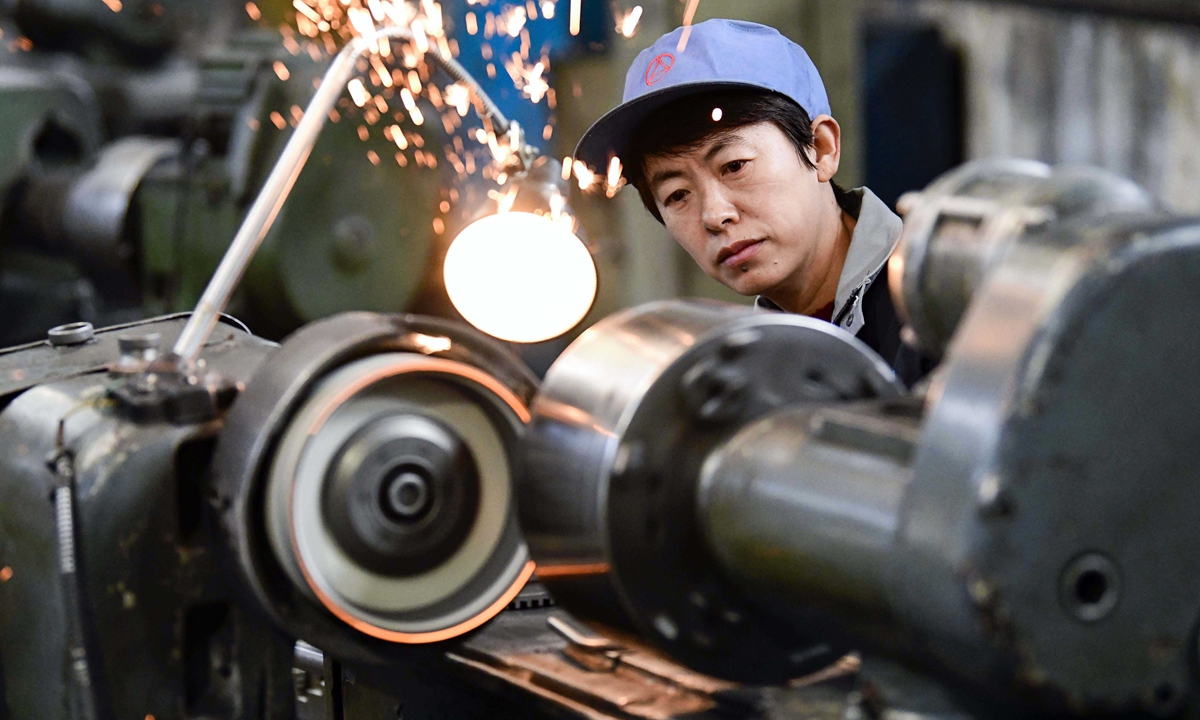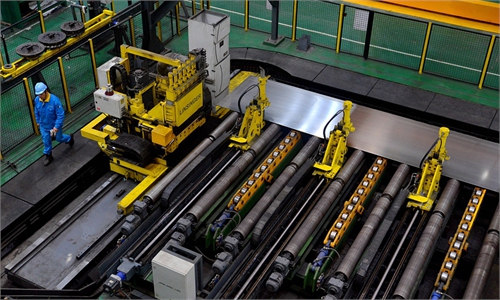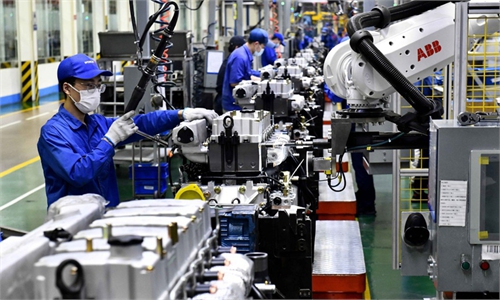China's factory activity rebounds in Nov amid easing power shortages, cost pressure

A worker processes parts at a factory in Hohhot, North China's Inner Mongolia Autonomous Region on Tuesday. China has been the world's largest manufacturing hub for 11 straight years, accounting for nearly 30 percent of global manufacturing output, official data showed. Photo:cnsphoto
China's factory activity beat market expectations and returned to expansion in November as power shortages in some provinces were mostly resolved and prices for major raw materials fell, official data showed on Tuesday.
Experts said that the manufacturing Purchasing Managers' Index (PMI) will remain in expansion territory in December, but pressure from the external environment - including the emerging Omicron variant - has led to increased uncertainty.
According to data released by the National Bureau of Statistics (NBS) on Tuesday, the official manufacturing PMI rose to 50.1 from 49.2 in October, beating broad expectations and rebounding after two months of contraction.
The 50-point mark separates expansion from contraction.
"The manufacturing PMI returned to the expansion range, indicating that the manufacturing industry's production and operating activities accelerated and improved," said Zhao Qinghe, a senior NBS statistician.
Zhao attributed the improvement to a range of targeted measures to strengthen market supplies and stabilize prices, which eased power shortages and led to significant falls for some raw materials costs in November.
Among the 21 industries surveyed, 12 were above the threshold, an increase of three from the previous month.
Activity at small and medium-sized firms picked up as well. The PMI for medium-sized enterprises was 51.2 in November, ending a two-month contraction. The PMI for small businesses was 48.5, a point higher than the previous month.
The sub-index for new export orders stood at 48.5 in November, up 1.9 points compared with October, while import orders hit 48.1, up 0.6 points, the NBS data showed.
The ongoing global economic recovery, combined with the upcoming Christmas consumption season in overseas markets and a foreign trade boom, all contributed to the positive trend, said Zhao.
Dong Dengxin, director of the Finance and Securities Institute at the Wuhan University of Science and Technology, forecast the uptick in factory activity would continue in December, given positive domestic economic fundamentals backed by strong exports and rising investment by local governments, combined with a steady rebound of retail sales.
"The changing external environment, including the emerging Omicron variant, has added uncertainties," Dong told the Global Times on Tuesday.
In contrast to the uptick in the manufacturing sector, growth in the services sector slowed slightly with the official non-manufacturing PMI in November down to 52.3 from 52.4 in October.
Zhao said the slowdown was due to small-scale COVID-19 flare-ups, which affected some services industries, including accommodation, culture, sports and entertainment.
Global Times


